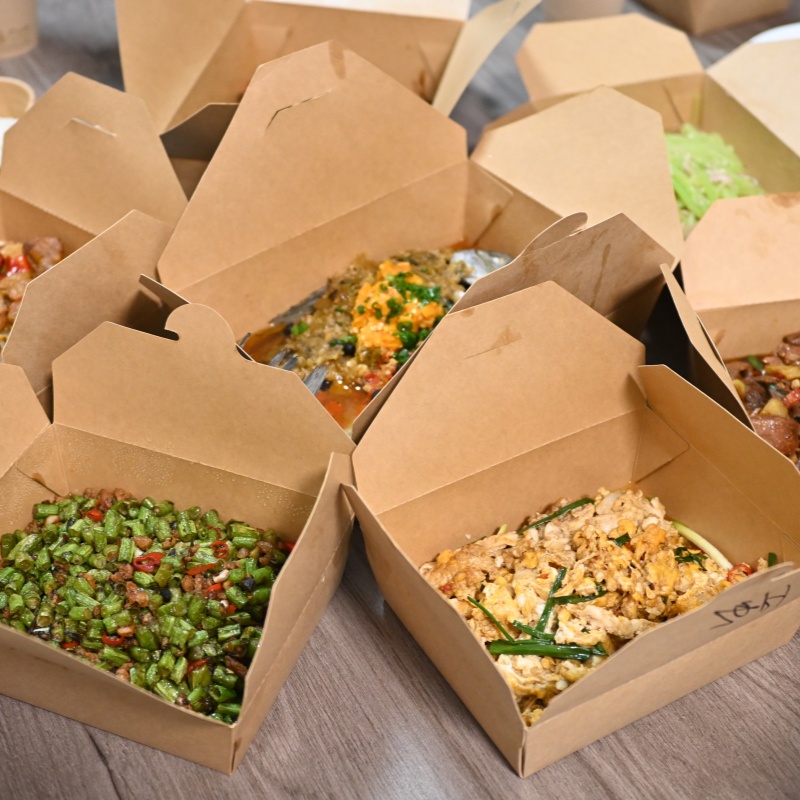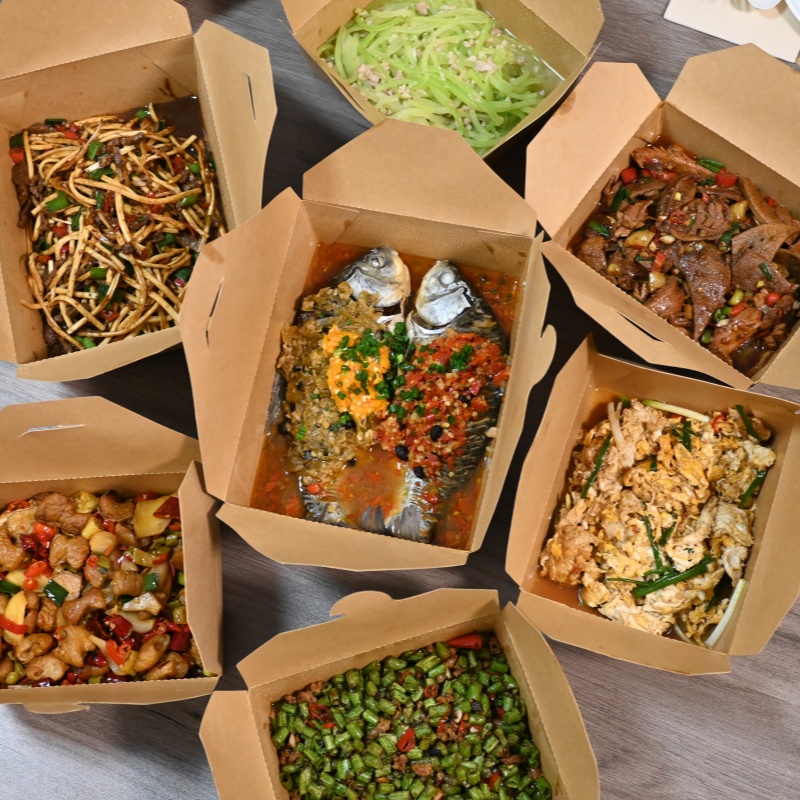The Dirt on Sustainable Take-Out: China's Path to Greener Consumption
In recent years, the global push towards sustainability has permeated various sectors, and the food industry is no exception. One particular aspect that has garnered significant attention is sustainable take-out. In China, where food delivery services have seen exponential growth, the environmental impact of take-out is a pressing issue. This blog delves into the challenges and innovations surrounding sustainable take-out in China, exploring how this bustling nation is striving to make its take-out culture greener.
The Take-Out Boom in China
China's food delivery market is one of the largest in the world, driven by the convenience and rapid urbanization that characterizes modern Chinese society. Apps like Meituan and Ele.me have become household names, facilitating millions of deliveries daily. However, this convenience comes at an environmental cost. The sheer volume of single-use plastics, from containers to cutlery, contributes significantly to pollution. As awareness of these issues grows, so does the demand for more sustainable solutions.
The Environmental Impact
The environmental footprint of take-out is multifaceted. Firstly, there is the issue of plastic waste. Single-use plastics, often used for their low cost and convenience, are not biodegradable, leading to significant pollution in landfills and oceans. Secondly, the production and transportation of these materials generate greenhouse gases, contributing to climate change. In China, where waste management infrastructure is still developing, the problem is exacerbated.
A report by Greenpeace East Asia highlights that in major Chinese cities, take-out packaging waste contributes to a substantial portion of urban waste. The report estimates that in 2019 alone, the food delivery industry produced over 1.6 million tons of packaging waste, including plastics and styrofoam, which are notoriously difficult to recycle.
Government Initiatives and Policies
Recognizing the environmental challenges, the Chinese government has taken steps to mitigate the impact of take-out waste. In 2020, China announced a nationwide ban on single-use plastics, including bags, straws, and utensils, to be implemented progressively over several years. This policy aims to drastically reduce plastic waste and encourage the adoption of more sustainable alternatives.
Moreover, the government has been promoting the concept of a circular economy, which focuses on reducing waste and making the most of resources. Policies supporting recycling initiatives, waste sorting, and eco-friendly product design are being rolled out. For instance, the "Guideline on Further Strengthening Plastic Pollution Control" issued by the National Development and Reform Commission (NDRC) and the Ministry of Ecology and Environment (MEE) outlines specific targets for reducing single-use plastics in the food delivery industry.
Innovations in Sustainable Packaging
The push for sustainability spurs innovation in packaging. Chinese companies are increasingly exploring and implementing eco-friendly packaging solutions, including MVI ECOPACK. Biodegradable and compostable materials, such as polylactic acid (PLA) made from corn starch, sugarcane bagasse take-out food container are being used to replace traditional plastics. These materials decompose more easily and have a smaller carbon footprint.
Additionally, some startups are experimenting with reusable container schemes. For example, some companies offer a deposit system where customers can return containers to be sanitized and reused. This system, while currently in its nascent stages, has the potential to significantly reduce waste if scaled up.
Another notable innovation is the use of edible packaging. Research is being conducted into materials made from rice and seaweed, which can be consumed along with the food. This not only reduces waste but also adds nutritional value to the meal.


Consumer Behavior and Awareness
While government policies and corporate innovations are crucial, consumer behavior plays an equally important role in driving sustainable take-out. In China, there is a growing awareness of environmental issues among the public, particularly among younger generations. This demographic is more inclined to support businesses that demonstrate a commitment to sustainability.
Educational campaigns and social media have been instrumental in shifting consumer attitudes. Influencers and celebrities often promote sustainable practices, encouraging their followers to opt for greener choices. Moreover, apps and platforms have started to introduce features that allow consumers to select eco-friendly packaging options when ordering take-out.
For instance, some food delivery apps now provide an option for customers to decline disposable cutlery. This simple change has led to a significant reduction in plastic waste. Additionally, some platforms offer incentives, such as discounts or loyalty points, for customers who choose sustainable options.
Challenges and Future Directions
Despite the progress, several challenges remain. The cost of sustainable packaging is often higher than traditional materials, posing a barrier for widespread adoption, especially among smaller businesses. Additionally, the infrastructure for recycling and waste management in China still needs significant improvement to handle the increased demand for sustainable practices.
To overcome these challenges, a multi-faceted approach is required. This includes continued investment in research and development of affordable sustainable materials, government subsidies for businesses adopting green practices, and further strengthening of waste management systems.
Public-private partnerships can play a vital role in this transition. By collaborating, businesses, government agencies, and non-profits can develop comprehensive strategies that address both supply and demand sides of the equation. For instance, initiatives that fund and support small businesses in adopting sustainable packaging can accelerate the transition.
Furthermore, ongoing education and awareness campaigns are essential. As consumer demand for sustainable options grows, businesses will be more inclined to adopt eco-friendly practices. Engaging consumers through interactive platforms and transparent communication about the environmental impact of their choices can foster a culture of sustainability.

Conclusion
The path to sustainable take-out in China is a complex but crucial journey. As the country continues to grapple with the environmental impact of its booming food delivery market, innovations in packaging, supportive government policies, and shifting consumer behaviors are paving the way for a greener future. By embracing these changes, China can lead the way in sustainable consumption, setting an example for the rest of the world.
In conclusion, the dirt on sustainable take-out reveals a mix of challenges and opportunities. While there is still a long way to go, the concerted efforts of the government, businesses, and consumers are promising. With continued innovation and commitment, the vision of a sustainable take-out culture in China can become a reality, contributing to a healthier planet for future generations.
You Can Contact Us:Contact Us - MVI ECOPACK Co., Ltd.
E-mail:orders@mvi-ecopack.com
Phone:+86 0771-3182966
Post time: May-24-2024










